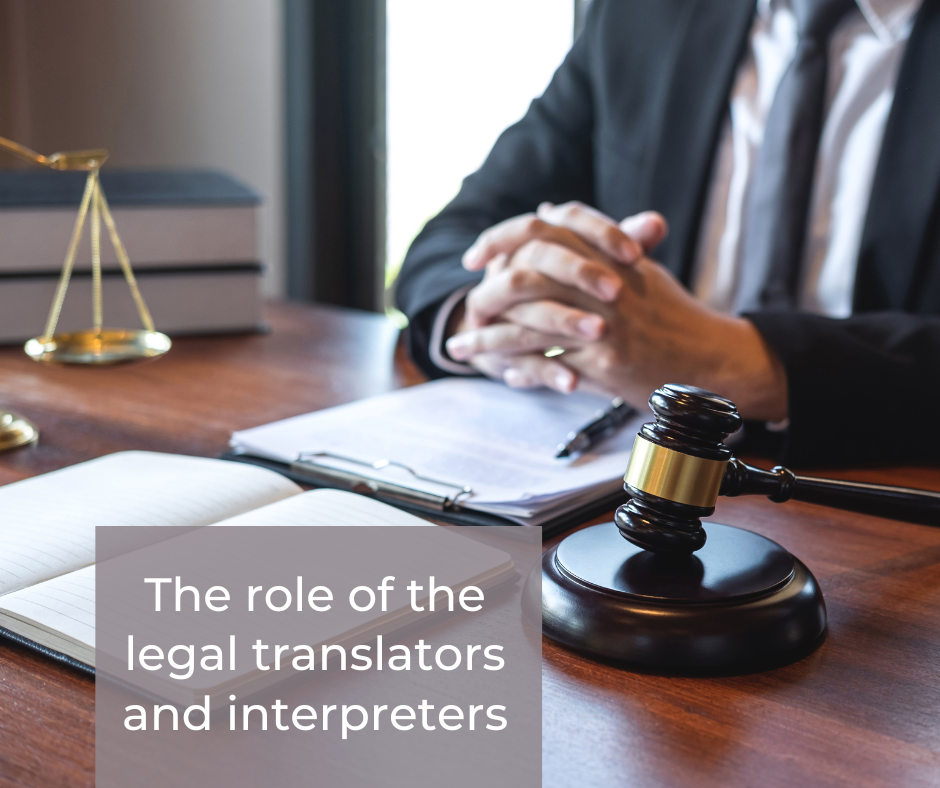Court interpreters: The legal translation and interpretation world is delicate, where the slightest misstep can have far-reaching consequences. The ethical responsibilities of legal translators and interpreters extend far beyond the mere exchange of words. The risks of neglecting ethical standards loom ominously, threatening the foundations of justice and fairness. This blog explores the ethical standards of legal translation and interpretation and the need for professionalism, accuracy, and confidentiality in this vital field.
Contents
- 1 The role of the legal translators and interpreters
- 2 Risks of neglecting ethical standards in legal translation and interpretation
- 3 Ethical Standards for legal translators and Interpreters
- 3.1 Accuracy and completeness
- 3.2 Impartiality and avoidance of conflicts of interest
- 3.3 Confidentiality and restriction of public comment
- 3.4 Limitations of practice
- 3.5 Protocol and demeanor
- 3.6 Continual skill improvement and knowledge enhancement
- 3.7 Interpreting protocols
- 3.8 Impediments to Compliance
The role of the legal translators and interpreters

Translators and interpreters are indispensable in the legal domain, guaranteeing unobstructed access to justice by overcoming language barriers.
Their proficiency in accurately translating legal documents and facilitating effective communication throughout legal proceedings fosters cross-cultural comprehension. It safeguards the foundational tenets of equity and precision within the legal framework.
Also know: Legal Translation for Intellectual Property: Protecting Your Rights
Translation of legal documents
Professionals are tasked with the critical responsibility of accurately and faithfully translating various legal documents.
These documents may include contracts, agreements, court rulings, statutes, and legal correspondence.
A legal translator must profoundly understand legal terminology, concepts, and systems in the source and target languages.
This expertise ensures the translations are precise and reliable, maintaining the intended legal meaning and context.
Interpretation in legal proceedings
Competent legal interpreters play a crucial role in facilitating effective communication and providing language assistance during court proceedings, depositions, and client meetings where participants require linguistic support.
Legal interpreters listen attentively to the spoken words in one language and accurately convey their meaning in the target language.
Throughout the process, legal interpreters must uphold impartiality and maintain strict confidentiality, ensuring the integrity of the proceedings.
Also know: Cross Borders: How legal translation services help business
Risks of neglecting ethical standards in legal translation and interpretation
Every sector has unique ethical considerations, and legal translation and interpretation are no exception.
Ethical principles guide the behavior and decision-making of professionals, ensuring the integrity and quality of their work.
Neglecting these ethical standards can significantly impact the individuals involved and the broader community.
Here are some of the risks associated with overlooking ethical standards in legal translation and interpretation:
- Even minor translation or interpretation errors in legal settings can have severe consequences, including wrongful convictions and compromised legal proceedings.
- Ignoring ethical standards can damage the professional reputation of translators and interpreters, impacting future job prospects and opportunities.
- Failure to adhere to ethical guidelines in legal translation may breach confidentiality and jeopardize privacy and rights.
- Ignoring ethics undermines justice, fairness, and equality, eroding trust in the legal system and questioning the legitimacy of legal decisions.
Ethical Standards for legal translators and Interpreters
To convey the original message accurately and avoid conflicts of interest, legal translators and interpreters must follow essential ethics for accuracy, impartiality, confidentiality, and professionalism, including:
Accuracy and completeness
Maintaining the utmost accuracy and completeness is essential for legal translators and interpreters.
The dialogue and texts must be wholly and accurately conveyed in the target language without omissions or distortions that may change the original message.
This ensures that the intended meaning is accurately conveyed and prevents misinterpretation or misunderstanding that could impact the proceedings.
Impartiality and avoidance of conflicts of interest
Court interpreters must remain impartial throughout the proceedings and minimize unnecessary contact with involved parties.
They must treat everyone equally, regardless of race, sex, national origin, religion, or any other characteristic that could introduce bias.
This commitment to impartiality ensures fairness and upholds the principles of justice in the courtroom.
Also know: The Dos and Don’ts of legal translation in Dubai
Confidentiality and restriction of public comment
Legal translators and interpreters must not disclose confidential information and are prohibited from making public comments about the case, safeguarding the proceedings’ privacy and integrity, maintaining the trust and confidence of all parties involved, and protecting sensitive information.
Limitations of practice
Professional legal translators and interpreters should strictly limit their work to providing translation and interpretation services and focus solely on their primary responsibility of accurately and impartially conveying spoken and written words. Engaging in activities beyond the defined scope of their role or offering advice is prohibited.
Protocol and demeanor
Interpreters must adhere to professional standards expected in the court and interpreting field.
This includes representing the parties’ speech in the first person and promptly notifying the court when speaking for themselves, ensuring a clear distinction between their role as interpreters and personal opinions.
Following these protocols and maintaining professional conduct helps preserve the integrity of the proceedings and avoids any confusion or misrepresentation.
Continual skill improvement and knowledge enhancement
Legal translators and interpreters must continuously learn and improve their interpreting and translation skills.
They should actively seek opportunities to enhance their professional abilities and stay updated with the latest developments in the field.
By continually improving their skills and expanding their knowledge, they can provide a higher level of service and ensure accurate and effective communication.
Interpreting protocols
To ensure consistent and effective communication throughout court proceedings, interpreters must adhere to specific modes of interpretation or translation, including consecutive, simultaneous, and sight Interpretation.
The court directs interpreters to follow these protocols, which dictate the appropriate method based on the particular circumstances.
Strict adherence to the prescribed interpreting protocols is essential to maintain a seamless communication chain during the proceedings.
Impediments to Compliance
If circumstances prevent the court or legal interpreter from complying with the protocols above, promptly bringing them to the court’s attention is crucial.
Reporting such obstacles promptly ensures that necessary measures can be taken to address the situation effectively.
By promptly addressing any barriers, interpreters contribute to the smooth and fair progression of the proceedings and help maintain the integrity of the interpreting process.
In conclusion, the role of legal translators and interpreters is vital in ensuring access to justice by overcoming language barriers in the legal domain. Neglecting ethical standards in legal translation and interpretation can have severe consequences, including compromised legal proceedings and damage to professional reputations.
Therefore, upholding essential ethics such as accuracy, impartiality, confidentiality, professionalism, and protocol adherence is crucial for legal translators and interpreters. By doing so, they contribute to the integrity and fairness of legal proceedings, preserving trust in the legal system.
Moreover, legal translators and interpreters should continually improve their skills and knowledge to stay updated with the evolving legal landscape. They can navigate legal translation and interpretation challenges and complexities effectively by visiting proactive and promptly addressing impediments.
Contact us today and take your legal documents to the next level with our reliable and ethical approach.



